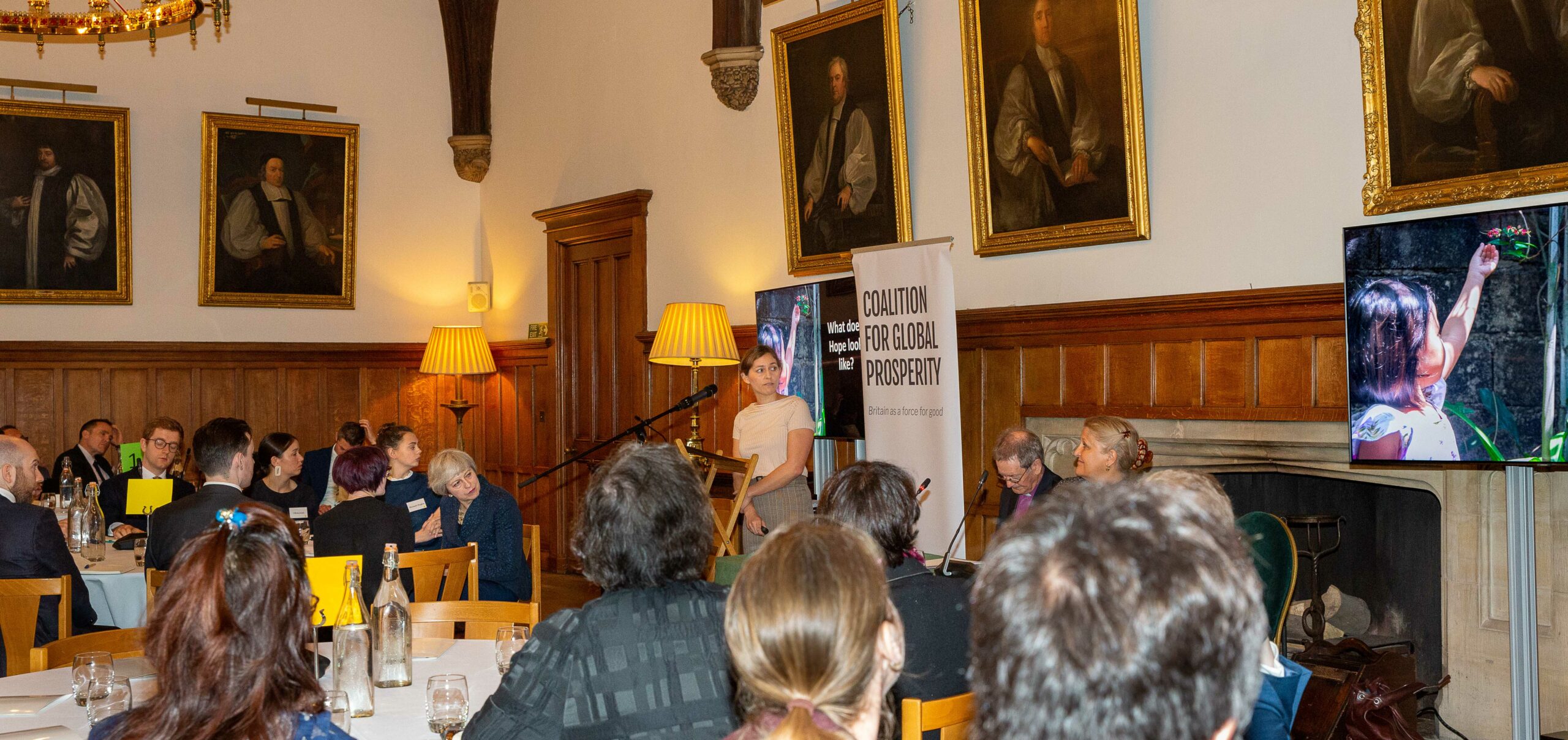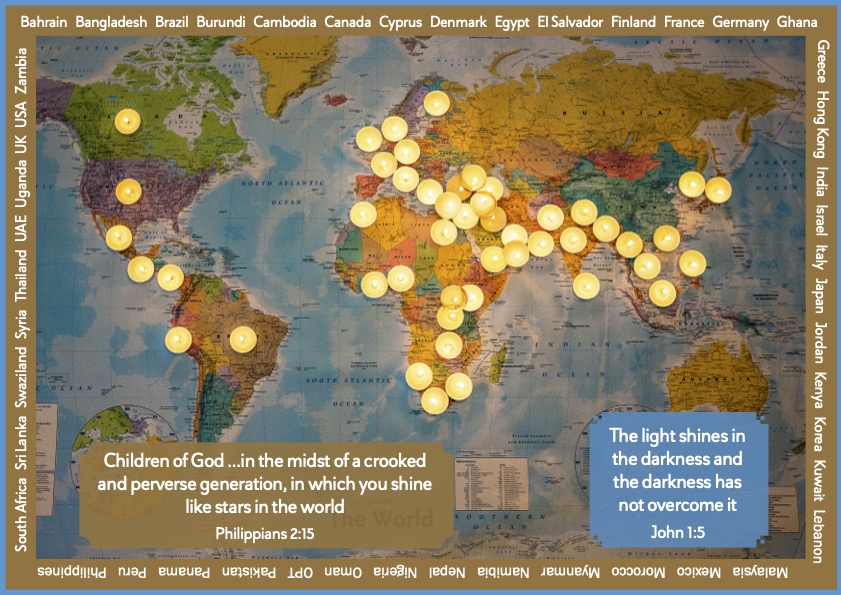What is the Anglican Alliance doing to tackle trafficking?
On this page:
- The Anglican Alliance’s anti-human trafficking journey
- Regional consultations
- Partnerships
The Anglican Alliance’s journey
 Promoting safe migration and tackling human trafficking is one of the core priorities of work for the Anglican Alliance, as it connects and helps to equip the ministry of the churches across the Communion.
Promoting safe migration and tackling human trafficking is one of the core priorities of work for the Anglican Alliance, as it connects and helps to equip the ministry of the churches across the Communion.
In 2014, the Alliance held its first global consultation on modern slavery and human trafficking, bringing together Anglicans from across the Communion and ecumenical partners to distil their experience of working in this area to build a strategic framework for response.
On 2 December 2014, an historic event at the Vatican hosted by Pope Francis saw global faith leaders, including the Archbishop of Canterbury, unite in signing a Joint Declaration to End Modern Slavery. This committed those leaders to engage their communities in working together. The Archbishop of Canterbury asked the Anglican Alliance to help equip and connect churches and agencies across the Anglican Communion in tackling modern slavery and human trafficking.
Partnerships
The Anglican Alliance has worked alongside several partners throughout its journey. These include:
The Salvation Army: The Anglican Alliance has learnt much from our partnership with The Salvation Army, which has been tackling modern slavery and human trafficking since its beginnings in the 19th Century. We have jointly convened regional consultations around the world and developed the Freedom Framework together along with other resources. The Salvation Army is deeply committed to this work, with a global task force and focal points in each of its territories.
COATNET: COATNET is a global network of Christian organisations working to combat human trafficking and assist survivors of modern slavery. The network links over 45 Christian organisations fighting human trafficking. Co-ordinated by Caritas Internationalis, we have Christian (Catholic, Anglican and Orthodox) members from 39 countries, and co-operate with other faith and civil society organisations worldwide. The Anglican Alliance is a member of COATNET.
The Clewer Initiative:– The Clewer Initiative is the Church of England’s response to modern slavery. It works in parishes across the country to stop slavery in both rural and urban areas. It believes that the tools to end modern slavery exist within the local community and run community mobilisation projects to help communities fight modern slavery.
Fifty Eight: Fifty Eight partners with organisations and individuals to promote ethical supply chains to achieve work that enhances quality of life, free from exploitation. Fifty Eight has developed a mobile app called Just Good Work. This is designed to help migrant workers looking for work overseas, providing them with access to information about every step of their employment journey, from the recruitment process to their return home. It aims to ensure workers are fully educated about the work they will undertake in order to make informed choices. The app is free and can be used offline where there is no internet access. The app is currently available in source countries Kenya, Uganda, Tanzania, and destination countries Saudi Arabia and Qatar. They are working on expanding to Nigeria and South Africa and other countries, as well as adding new destinations to Kuwait, Bahrain and Oman.
Stop the Traffik: The Anglican Alliance has partnered with Stop the Traffik in particular to support their groundbreaking work on intelligence-led prevention using technology. Through their Stop App, they are building a rich picture of the trends, hotspots, routes and networks of human trafficking on a global scale. With greater intelligence, they are generating targeted action to disrupt human trafficking networks at their source. Stop the Traffik also run targeted awareness raising campaigns.
Links
- Safe Migration into the Gulf consultation report - UAE 2020
- Contra la Trata de Personas - Consulta Regional Latinoamérica 2017/2019
- Diocese of Jerusalem's Women's Ministry safe migration and AHT consultation report - Jordan 2019
- East Asia AHT consultation - Cambodia 2018
- Second Africa AHT consultation report - Kenya 2018
- Asia and Pacific AHT consultation report - Nepal 2016

At a roundtable on human trafficking held at Lambeth Palace, Former UK Prime Minister Theresa May is amongst participants reflecting on a photo taken by a survivor of trafficking in the Philippines. The photo is of the survivor’s daughter and was taken as a response to the question “What does hope look like to you?”
Regional consultations
 Since the Anglican Alliance began working in this area, it has hosted a number of regional consultations, often in partnership with other organisations such as The Salvation Army. These consultations bring people together from churches across the region to connect and equip them with the knowledge and resources needed to understand how trafficking is taking place in their area and what they can do as the church to respond.
Since the Anglican Alliance began working in this area, it has hosted a number of regional consultations, often in partnership with other organisations such as The Salvation Army. These consultations bring people together from churches across the region to connect and equip them with the knowledge and resources needed to understand how trafficking is taking place in their area and what they can do as the church to respond.
Out of these groups, communities of practice have been formed which enable an ongoing space for people to support each other in their work.
Regional consultations have been held in:
- Europe (Germany, 2015)
- Africa (South Africa, 2016 and Kenya, 2018 and 2019)
- Latin America (Brazil, 2017 and 2019).
- South Asia (Nepal, 2016)
- East Asia (Cambodia, 2018).
- North America (Canada, 2018)
- The Middle East (Jordan, 2019 and UAE, 2020)
For news stories on these consultations look here, here, here, here and here.
In the videos, three participants from the 2018 East Asia consultation in Cambodia share their thoughts about the value of such consultations.

Anglicans from almost fifty countries have taken part in the consultations.
